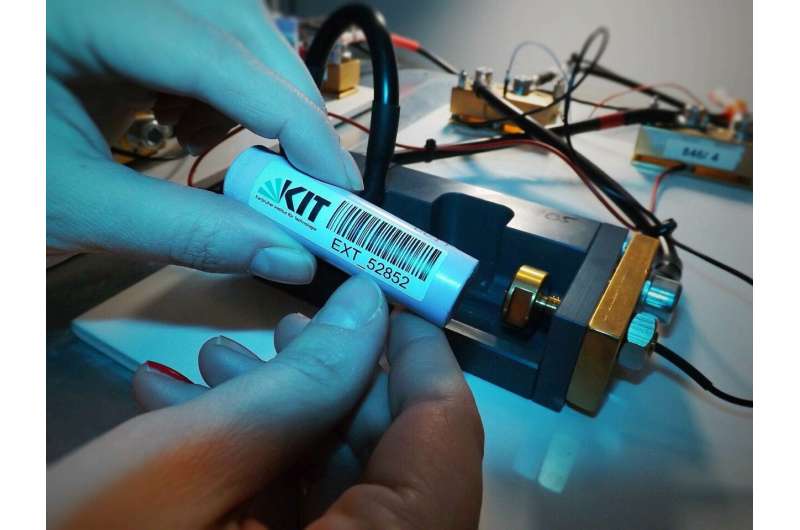Quick charging system for E-bikes

The e-bike market is booming. Thanks to electric support, cyclists can choose their routes more freely, elderly people can stay mobile, and commuters reach their workplace stress-free. This makes many people use bicycles instead of cars. Presently, charging of the battery takes about two to four hours. To shorten charging time of e-bikes in particular during daily use in the city, Karlsruhe Institute of Technology (KIT) and Coboc GmbH & Co. KG, a company specialized in electric mobility, plan to make the batteries of pedelecs capable of rapid charging.
For most users of e-bikes in the city or on short distances, a short range and, as a result, smaller batteries than those presently used in most e-bikes would be sufficient. This saves costs and protects the environment. To cover longer distances, however, the battery must be charged as quickly as possible. Charging of a conventional e-bike battery today takes two to four hours. Hence, a quick start after complete discharge is prevented. "For this reason, we want to develop a quick charging system for e-bikes, which is compact and reaches a high performance, but is also user-friendly and ecologically compatible," says Nicolaus Lemmertz, scientist of KIT's Institute of Electrical Engineering (ETI), who heads the project.
The new quick charging process is to be based on lithium-ion cells of long service life, to reach a comparably high charging current of up to ten amperes, and to be suited for recharge at normal 230 V plugs within less than one hour. In addition, the battery management system is to offer a diagnosis function: the data measured while the e-bike is used are acquired via an internet-of-things solution (IoT), analyzed, and streamed in the internal Coboc cloud. These data reveal the state of charge (SOC) and the state of health (SOH) of the battery, which influence each other.
The data evaluation results will then be made available to manufacturers and users in the form of graphics. On this basis, the e-bike can be optimized and adapted. For preventive maintenance, information on the battery state is updated constantly. "By selling e-bikes with such a smart system, we cannot only increase our market share, but also enhance sustainability," Coboc Director David Horsch emphasizes. Within the project, KIT is responsible for the selection and assessment of suitable lithium-ion cells, for investigating the service life of selected cells, and for developing the quick charging process and the SOC and SOH diagnosis system. Coboc focuses on the analysis of requirements, the development of the operation management system, implementation of the IoT system with the respective server back end as well as on the hardware and its integration into the electric bike.
Provided by Karlsruhe Institute of Technology





















